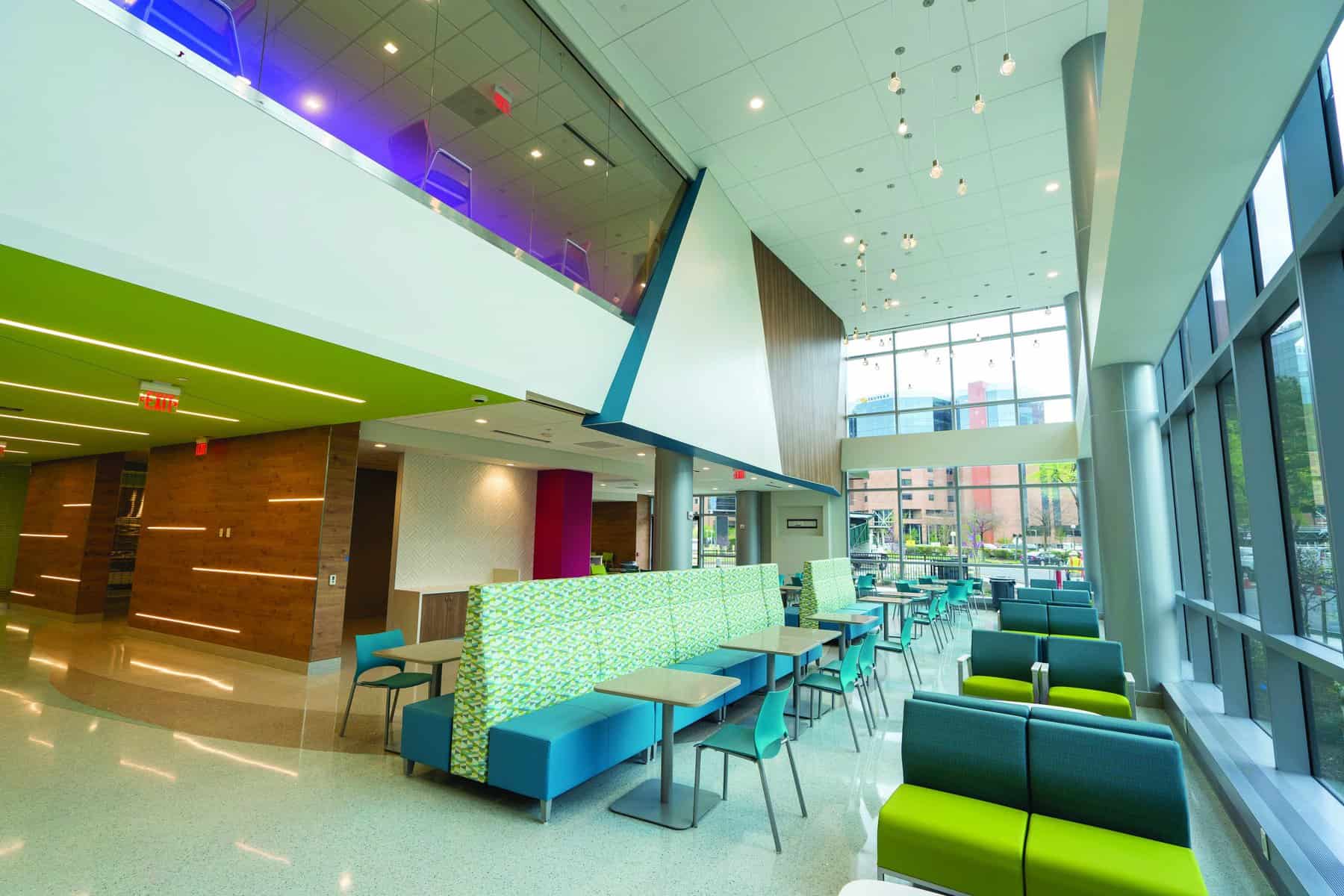Children’s Hospital of The King’s Daughters opened its new $224 million, 14-story Children’s Pavilion on April 25. The facility offers a wide array of outpatient psychiatric services that include pediatric psychiatrists, psychologists, nurse practitioners, mental health therapists, primary care pediatrics, laboratory and radiology services, sports medicine, and more. Later this year, CHKD will launch its 60-bed inpatient psychiatric care program.
Carl Petersen, DO, is the chief of psychiatry and mental health services at Children’s Hospital of The King’s Daughters. He is dual board certified by the American Board of Psychiatry and Neurology in general and child and adolescent psychiatry. A retired U.S. Navy captain, his experience includes overseeing several mental health initiatives and programs. Petersen spent the last 10 years of his military career at Naval Medical Center Portsmouth, serving the last three as its director of mental health.
Here, he shares his insights with Jewish News, including keeping up with trends and research in mental health, serving the community, and working to help families and children that are seeking treatment.
Jewish News: When did the idea arise for this new building?
Dr. Carl Petersen: CHKD began expanding its mental health program in 2018 in response to parents asking for mental health treatment for their children, both directly and through community needs assessment surveys. Pediatricians within our system were also asking for help in treating a growing number of children coming to them with mental health concerns. Also, our emergency department was treating an increasing number of children who arrived in crisis because of a mental health issue, some of whom spent days in the ED while we searched for proper inpatient care for them. We broke ground on the Children’s Pavilion in September of 2019.
JN: Comparing the building from concept to today, has pediatric mental health remained as prevalent an issue or become even more urgent?
CP: It has become more urgent because children have suffered from social isolation and family trauma caused by the Coronavirus pandemic.
JN: What services/amenities will be available through the inpatient units once they are complete, and what is the timeline?
CP: The 60 inpatient psychiatric rooms will be private and will have room for a parent or caregiver to spend the night. The inpatient rooms and gathering places on the unit have been designed to keep children safe, but still be full of light. The building has stunning views of Hampton Roads, a rooftop area where children can play and get fresh air, and healing amenities such as art and music therapy rooms. Evidence-based treatments, an academic training program, and clinical research to guide mental health innovation for children will put the facility among the top pediatric mental health facilities in the nation. We will be phasing in the opening of the beds starting this fall.
JN: What are the most successful modalities today that help prevent suicide in minors?
CP: There have been few randomized trials on effective suicide treatment approaches in the pediatric population. This is an active area of research with a goal to identify the most effective interventions to prevent suicide. Screening children for suicidal thoughts or behaviors has been shown to be very effective. For example, universal suicide screening of all children being seen in emergency departments was recently found to be a best practice to help identify those children at risk of suicide, which is why we implemented such screening 18 months ago.
In the past, treatment for suicidal youth focused on addressing the underlying psychiatric disorders such as major depression, and suicidal behavior was viewed only as a symptom of the underlying disorder. More recently, treatments have targeted the suicidal behavior directly to reduce risk of self-harm. The challenge is most youth with suicidal ideation or attempts do not share this information with their parents or guardians, As such, effective screening of children for suicidal ideation is critical as is educating parents, educators, and teens themselves on the signs that a child may be contemplating suicide.
In addition to addressing the underlying psychiatric disorders, psychotherapeutic interventions such as Dialectical Behavioral Therapy and Cognitive Behavioral Therapy target the suicidal thoughts and behaviors directly, and have demonstrated effectiveness in reducing suicide-related behavior. Additionally, limiting access to firearms has demonstrated effectiveness in reducing suicide.
JN: What are you looking for in a professional as far as knowledge, experience, and relatability to the patient and their family?
CP: Later this year, we will have 18 board-certified child psychiatrists, 11 child psychologists, 10 pediatric psychiatric nurse practitioners, and 20 pediatric mental health therapists on staff. All of these professionals have demonstrated expertise in the field and a commitment to providing evidence-based care.
Additionally, as an academic program, we have carefully selected our team to ensure our providers are committed to continuous learning, education, and participating in research to help identify future interventions that help children and families. With respect to relatability, we are aggressively recruiting a diverse team of clinicians that understands the challenges different parts of our community face each and every day.
JN: How does a program measure its success in outcomes?
CP: We use several symptoms scales that have been validated in research to track treatment severity and improvement with appropriate treatment. In addition, we use quality-of-life measures before and during treatment to ensure our patients are improving.
JN: What are some misconceptions that a family may have about seeking/receiving treatment for a child with a mental health issue?
CP: One that is often repeated is that mental health issues in children are rare. The truth is between one in four and one in five children will have a diagnosable psychiatric condition. Over the past 30 years, a growing body of research has demonstrated treatment is highly effective. Early identification and intervention are important because these disorders tend to be more amenable to treatment when addressed early.
JN: What are your hopes for the facility insofar as serving the needs of the community?
CP: We are hopeful families and their children will not have to wait as long for mental health care, and that there will be a wide array of services to help children with mental health concerns. We want to provide a full continuum of care ranging from preventive care to outpatient care to more intensive inpatient psychiatric care to meet children’s needs at all stages.
JN: Other comments?
CP: The talented mental health team at CHKD is excited at the opportunity to build programs to help families in Hampton Roads and we appreciate the support of the community.
Children’s Hospital of The King’s Daughters Children’s Pavilion is located at 401 Gresham Dr. in Norfolk.


